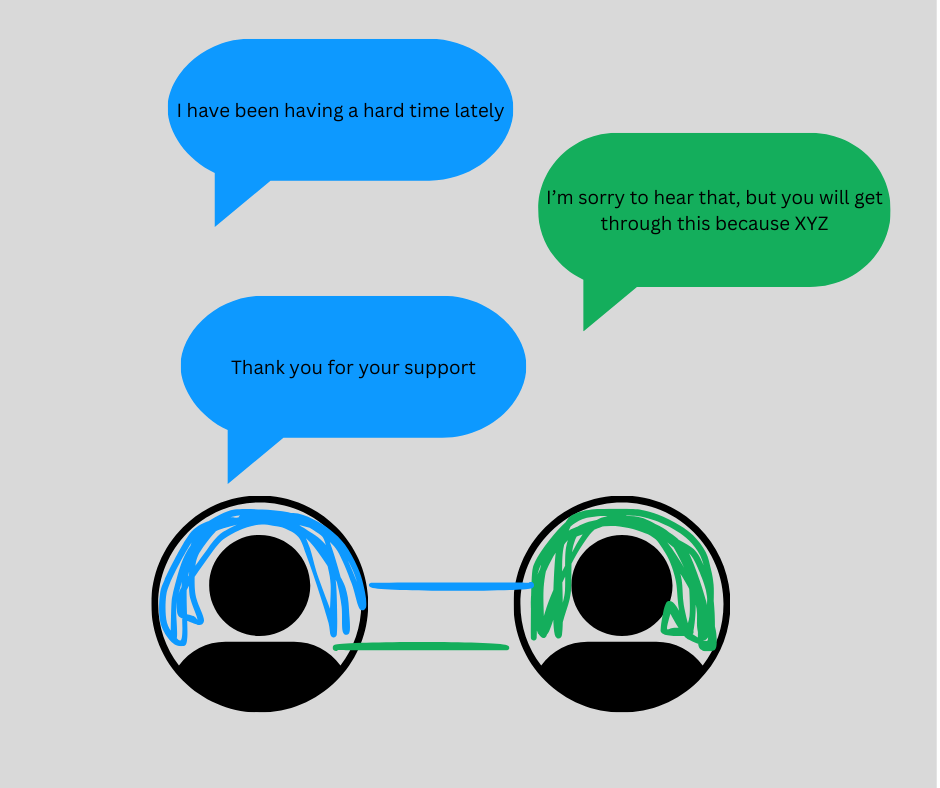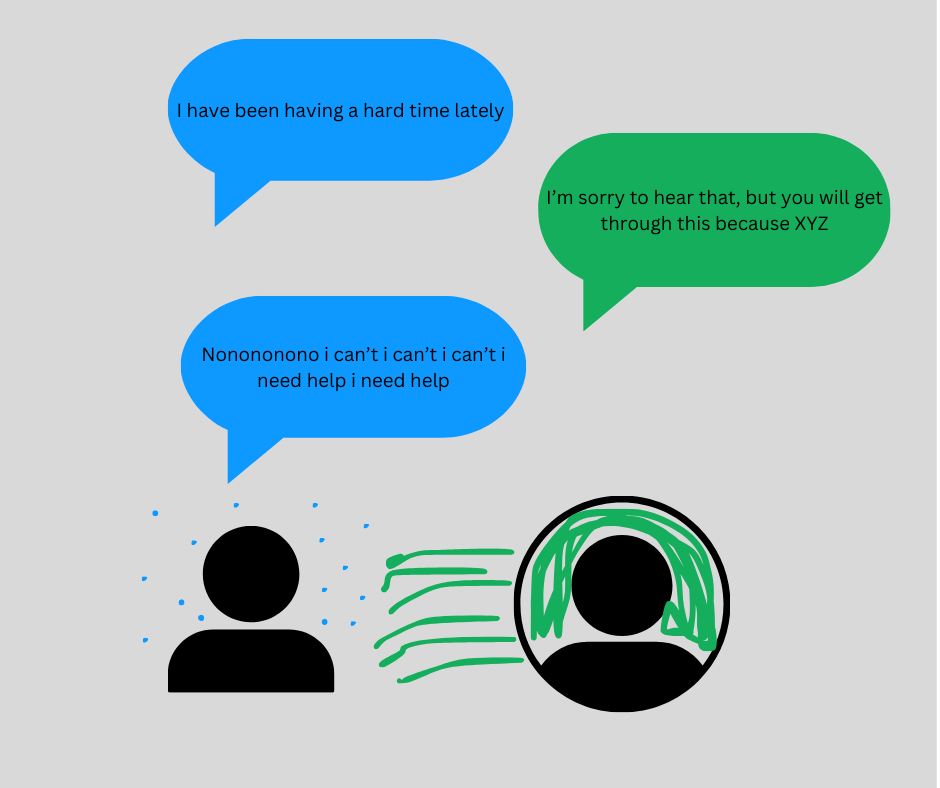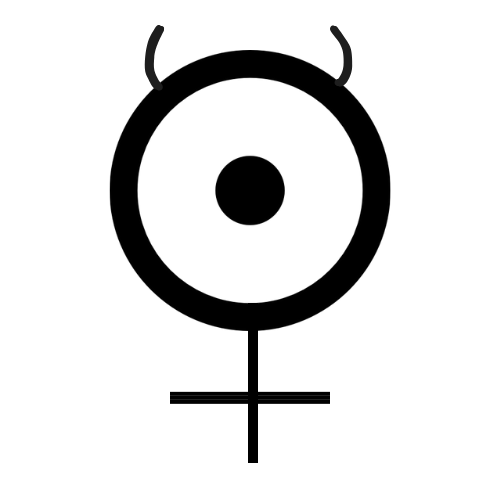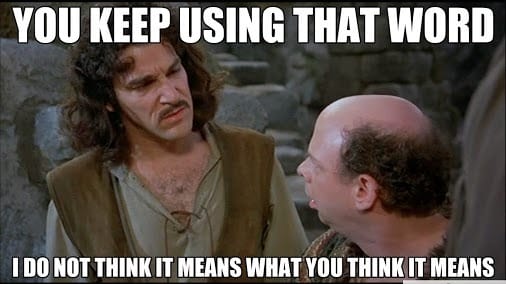Using Attachment Theory to Destigmatize Energy Vampirism
There are a couple of terms between metaphysical and colloquial applications that get frustratingly confused. Among them is "empath" which is usually used for people who have clairsentient abilities, but has recently taken off online as a self-identifier for people who feel like they read others' energy well. There's also "emotional vampire" or "energy vampire," used interchangeably and almost always in a derogatory sense toward those who seem to "suck out" positive energy from a room or other people.
Discussions surrounding "energy" in metaphysical communities can get messy, broad, and subjective very quickly because while there are many traditional frameworks that define and use energy, they are not always consistent in how and where they are applied. Most of us do not have specialty in any traditional framework because of growing up in a secular, materialist society that mostly denies the existence of energetic bodies and their processes. Orphaned, our experience, practice, and therefore language about energy is overall weakened.
For the purposes of this blog post, I am going to use attachment theory to illustrate how healthy and unhealthy relational dynamics involve energy give-and-take between individuals. I believe from my research and work with attachment theory conjunct with psychic experience that "secure attachment" and "insecure attachment" are representative of different types of interpersonal energetic habits.

But for starters, when people in spaces I frequent ask, "are energy/emotional vampires real?" or something a level deeper like "are we sure energy/emotional vampires aren't just hungry?" they seem to be trying to understand a few things:
- Why is Aunt Sonja or my former friend so miserable?
- Or, "vampire" is a name that seems to damn a person to malevolence, but is that the reality?
Trying to understand other people, even if within a context of frustration or resentment, is a worthy goal.
Energy/emotional vampires are real because there are people in the world that self-identify as such. Michelle Belanger is one such individual who has been in the occult community since the 90s. I took Belanger's class on energy work a few years ago where they disclosed, as they have elsewhere, how their vampirism worked. Belanger produces low energy naturally and to compensate, they consensually feed off others who naturally produce higher levels of energy, such as their wife. There are others who share similar experiences, as recorded in Belanger's book The Psychic Vampire Codex, which I have not read.
Feeding off of others' energy is not an inherently negative quality. In fact, most humans are able to do this on some level. Concerts, sports games, and other high excitement events get to that point because individual attendees in crowds are able to build off of each other's enthusiasm. Performers speak dreamily as the recipient of this phenomenon, literally energized off of their fans as they deliver their shows.
With intention, this act of energetic feeding can be very beneficial. It is a key part of co-regulation. My close friend of several years, Alayna*, is an empath whose natural access to other people's energy can leave her overwhelmed. After reading Esoteric Empathy by Raven Digitalis, she learned that when anxiety-ridden she could turn this natural feature toward her husband and feed off his calm energy in order to find grounding.
From my other psychic work, I suspect that it is also possible that individuals can get into social habits that others experience as energetically depleting. I had a disastrous previous year filled with new challenges and traumas that left me at times borderline suicidal. Between my neurodivergence and unhealthy upbringing by emotionally immature parents, I lacked an inner foundation where people with healthy upbringings and positive self image habitually go in order to self-soothe. So while my friends were initially eager to support me, I grasped at them energetically in a way a young child might to their parents because I was never taught that the way to calm and stability could and should come from myself. It is, in fact, impossible to achieve both naturally when you were actively taught that you're too incompetent and immature to be self-reliant.

The What We Do in the Shadows clip parodies a certain type of person, who may be experiencing severe depression and who seeks out others' sympathetic attention while doing nothing to improve their mood or situation. But on some level, all anxious attachment is "yearn[ing] to get emotionally close to [others] in order to feel more secure" (National Library of Medicine). This puts the onus on the people in our lives to reassure us of emotional safety instead of finding it ourselves and that involves the use of their energy.
The irony is, even with all the grasping at my friends I was doing in order to steady myself—and aren't you supposed to tap into your support network, I wondered at the time not realizing you have to take a moment to face your own emotions first—their repeated kindness and reassurance did not actually achieve anything. I did not feel any better and they often felt worse.
In somewhat contrast to my preoccupied-anxious attachment style, Grace leans somewhere along avoidant-anxious attachment style. People with avoidant attachment styles "strive to create and maintain independence, control, and autonomy in their relationships because they believe that seeking psychological/emotional proximity to romantic partners is either not possible or undesirable" (NLM).
People with avoidant attachment styles have just as much anxiety about relationships, they're just exhibiting it differently. How this has played out energetically is that in the beginning of our psychic connection, Grace did not know how to equally contribute in our interactions. She felt like she was holding back, which tired me out quicker because while I sent out energy I did not receive any to fuel me in return. The difference between a secure person's energy and an avoidant person's is that the former has a solid sense of self and self-regenerates its own comfort. Avoidants, despite their pathological focus on independence, don't self-regenerate; they hold themselves in anxious and self-isolated depletion where they can neither properly give nor receive.
It's hard to explain exactly what Grace figured out, but once I pointed out the situation she kind of re-positioned herself. This new position more "faced" and "supported" me and almost seemed to touch me more. It also helped to be able to describe to her what my podmate J and his partner do when they go to parties, which is essentially "double body" in order to have the energy to withstand the stimulation. With this small adjustment on Grace's part, our relating became more sustainable for me. While at first our psychic connection could be disruptive and exhausting, changes around our energy—fully discussed with boundary-setting—has made our daily interactions a much more normal and sustainable part of our lives.
I wish I could discuss energy exchange disparities with everyone in my life. Eventually, after some months of my anxious outbursts, a number of my friends started giving me a wider berth. They were not able to articulate to me that how I was behaving was draining them. I only realized it, as unfortunately a lot of neurodivergent people do after accidentally committing social faux pas and suffering damage to their social connections, in hindsight. I have also been on the other end of the dynamic, losing several friends because I put up boundaries when I truly could not handle how much they demanded of me.
So to answer the usual questions: no energy vampires are not malevolent, nor are those who perform some kind of energetic over demand on you. There's compassion, and even possible solutions through conversation, to be had for everyone. It would be ideal if in metaphysical spaces we didn't tag individuals with harmful labels as a reaction to hurt we ourselves feel toward them.
*Alayna and my father both have natal Scorpio Moons and resulting natural high clairsentient abilities. If you have struggled your entire life with regulating emotions and finding you are highly reflective of others', check your natal chart with exact birth time at astro.com to see if



